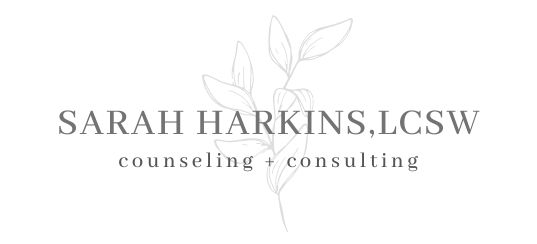I’ve never talked to anyone. I’m used to handling things on my own. Aren’t people who go to therapy weak?
Not at all. There is a myth we’ve been taught that only people who are deeply troubled go to therapy – but that’s just not the case. Everyone needs help now and then. Yes, therapy has been shown to be incredibly effective in helping people who are experiencing severe mental health concerns – but I also see people for relationship issues, work stress, family conflict, grief, burnout, and anything in between. The ability to identify that you need help and can’t do it all on your own – and shouldn’t have to – is the quality of an incredibly strong person.
What’s the difference between talking to you or my best friend or family?
The difference is between someone who can do something, and someone who has the training and experience to do that same thing professionally. A mental health professional can help you approach your situation in a new way– teach you new skills, gain different perspectives, listen to you without judgment or expectations, and help you listen to yourself. Furthermore, counseling is completely confidential. Lastly, if your situation provokes a great deal of negative emotion, and you’ve been confiding in a friend or family member, there is the risk that once you are feeling better you could start avoiding that person so you aren’t reminded of this difficult time in your life.
Is virtual therapy as helpful as in-person therapy?
Research has consistently shown that virtual therapy is equally effective in providing help to those struggling with their mental health as in-person sessions. Of course, there are certain circumstances that are better served by in-person treatment. If you aren’t sure if virtual therapy is right for you, I am happy to discuss this with you to see what might be the best fit for your situation.
Should I just take medication?
Medication can be effective but it alone cannot solve all issues – and it is not for everyone. Sometimes medication is needed in conjunction with therapy. I am always happy to discuss desire for or questions about medication, and have great relationships with medication providers in the area.
How does it work? What do I have to do in sessions?
Because each person has different issues and goals for counseling, it will be different depending on the individual. I tailor my therapeutic approach to your specific needs. In general, you can expect your first session to consist of me asking about your background, what your life looks like now, what’s on your mind, what’s bothering you, and any goals you might have moving forward. The process of therapy after the first session varies greatly based on your situation, but our time together is a place for you to say exactly what you feel and to explore how you can make changes, understand your past more clearly, and/or problem-solve concerns in your day-to-day life.
How long will it take?
Unfortunately, this is hard to give a specific answer to. Everyone’s circumstances are unique to them and the length of time therapy can take to allow you to accomplish your goals depends on your desire for personal development, your commitment, and the factors that are driving you to seek counseling in the first place.

